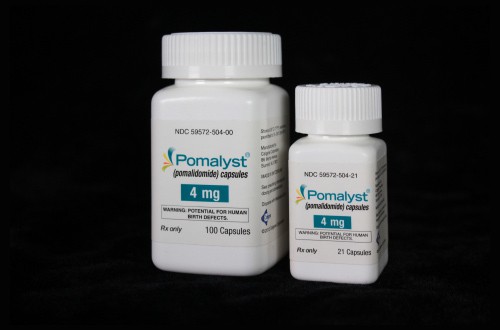
Celgene has been given the go-ahead by the US FDA to market Pomalyst, a new drug for multiple myeloma that has been tipped for $1bn-$1.5bn in annual sales.
The FDA approved Pomalyst (pomalidomide) as a treatment for patients with multiple myeloma – a form of bone marrow cancer – whose disease has progressed despite earlier treatment with other drugs such as Celgene’s own Revlimid (lenalidomide) or Novartis/Millennium’s Velcade (bortezomib).
The labelling means that Pomalyst is effectively reserved for third-line use as a salvage therapy alongside Onyx Pharmaceuticals’ Kyprolis (carfilzomib), which was approved in the US in July 2012.
Kyprolis too has been predicted to make healthy sales in the $500m to $1bn range, thanks largely to an anticipated doubling of the overall multiple myeloma market from its current level of around $6.5bn.
However, Pomalyst expected to be somewhat more popular because it is oral whereas Kyprolis is given by injection.
“Treatment for multiple myeloma is tailored to meet individual patient’s needs, and today’s approval provides an additional treatment option for patients who have not responded to other drugs,” said the FDA’s Richard Pazdur.
In trials, Pomalyst given in combination with dexamethasone achieved an overall response rate of 29 per cent of patients (7 per cent when given alone), while the median duration of response was more than seven months.
Celgene has said it expects to launch Pomalyst in the US within the next couple of weeks, and has set a price of $10,450 per 28-day treatment cycle, with patients expected to receive between five and eight cycles.
For Celgene, the approval of Pomalyst gives it an opportunity to consolidate its position against Takeda/Millennium in multiple myeloma, although its rivals, which claim to be the dominant player in the market with 50-60 per cent share, are also working on new products.
Towards the end of 2012 Takeda/Millennium revealed phase II data on a once-weekly oral formulation of Velcade to market which could prove to be a potent competitor, while they have also received US and EU approval for a new subcutaneous formulation to complement its initial intravenously-administered product.




